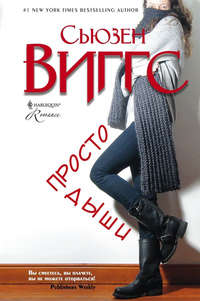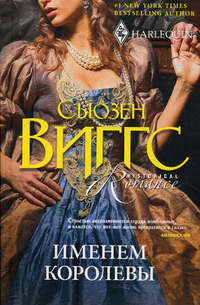
Полная версия
The Winter Lodge
“Oh,” Daisy said. “Does she work for the mayor?” Sonnet took a bite of her kolache. “She is the mayor.” “Hey, that’s awesome,” Daisy said.
“Not for long,” Zach interjected. “My dad’s running against her in the next election.”
“Yeah, well, good luck with that,” Sonnet said with airy confidence.
“He’s the city administrator and he’s saved the city a fortune. People love that,” Zach countered.
“Yeah, they love it when you cut services, like closing the municipal pool. What’s he going to close next, the library?” She finished eating the kolache and wiped her hands with a napkin.
Announcements crackled over the PA system, drowning the conversation. There was a meeting of the debate club after school. Ice-hockey practice and a 4-H Club sugaring-off party, which sounded wholesome, but Sonnet whispered that it was a chance for the 4-H’ers to go out into the woods, boil maple sap into syrup and get high while doing it. Then—Daisy couldn’t believe it—everyone stood up, turned to face the flag in the corner of the room and said the Pledge of Allegiance. The words came to her from some hidden well she thought she’d forgotten.
“Let’s have a look at your schedule,” Zach said.
Daisy spread it out on the desk and the three of them studied it.
“Whoa,” said Zach. “Calculus and honors physics? And AP English? What are you, a glutton for punishment?”
“I didn’t get to pick,” Daisy explained. “At my old school, I had to take five AP courses.” She shifted uncomfortably in her seat. “It was a really hard school.”
“So you’re halfway through senior year, and they made you move to the boonies,” Sonnet said. “That’s harsh.”
“I begged my dad to let me stay in the city,” Daisy said, though beg was a euphemism for screaming fit. “I even said he could homeschool me, but he wouldn’t hear of it.”
“Why not?”
“He claims he doesn’t remember calculus. And I was, like, fine, we’ll fail it together, because I don’t understand it, either.”
“Probably not the best way to convince him,” Sonnet said. “I’m surprised they even have classes for you here.”
Daisy decided not to tell her that technically, she probably had enough credits to graduate early. The only problem with that was, if she left school, then she’d have to get a life. And she was totally not ready for that.
By comparing notes, she discovered she had several classes in common with either Sonnet, or Zach, or both. Sonnet was some kind of accelerated brainiac. Though only sixteen, she would graduate with the seniors in June. And Daisy figured out that even though Zach and Sonnet teased each other, they were kind of into each other. But there was definitely a rivalry going on.
“It’s a little weird,” Zach agreed. “I can’t wait to get the hell out of here. My college apps have been in since October. What about you?”
Daisy stared down at her pristine, empty notebook. “I applied,” she admitted. The counselor at her other school had practically held her under house arrest, making her fill out applications. “I don’t really want to go to college,” she confessed.
Sonnet and Zach seemed to take it in stride. At Daisy’s old school, saying “I don’t want to go to college” had the impact of saying “I have an STD.” People stared at you, hiding their disgust behind pity.
And for Daisy, the most disgusted, pitying looks had come from her own parents.
Zach and Sonnet didn’t look pitying at all. Maybe at this school you weren’t considered a loser and a freak just because you didn’t plan on being a rocket scientist or Supreme Court justice.
So far, thought Daisy, the day didn’t totally suck. That was a surprise. Of course, they hadn’t even left homeroom yet.
The bell rang and everyone flurried into action, shuffling papers, stuffing backpacks and heading for the door. In the corridor, kids floated along like leaves in a stream.
Zach veered toward a classroom with French travel posters plastering the door. “Here’s my stop,” he said. “Find me at lunch.” He disappeared into a classroom.
“So, do you have a boyfriend?” asked Sonnet.
Boyfriend? Now, if Sonnet had asked her if there were guys Daisy hooked up with, she would have a different answer. “No boyfriend,” she said firmly. “Why do you ask?”
“Because Zach is totally crushing on you. He has been since the second you walked into homeroom.”
“I don’t even know him.”
“I don’t even know Orlando Bloom, but I totally know I would be his love slave until the end of time.”
“Believe me, I don’t want to be anyone’s love slave.”
Been there, done that, she thought. “And anyway, you’ve got him pegged all wrong. He’s into you, not me.”
Sonnet shook her head, corkscrew curls bobbing. “He hates me.”
“Right. He hates you so much he brings you a pastry every morning.”
“If you’re so smart, how come you’re not going to college?”
“I’m not sure of anything.” She experienced a tiny glimmer of warmth and found herself hoping this was the start of an actual friendship. “I like the name Sonnet,” she said, wanting to turn the topic away from herself.
“Thanks. My mom says she picked it because she didn’t want anything that sounded too ethnic. All my cousins on my mom’s side of the family are Lucias and Marias and so forth. Sonnet is just … weird.”
“Weird in a good way,” Daisy assured her.
“She once told me she was reading a book of Shakespeare’s sonnets when she went to the hospital in labor.” Sonnet’s velvety brown eyes softened with an expression Daisy couldn’t read.
“So your last name is Romano, like the teacher,” she remarked, looking at the name scrawled on Sonnet’s notebook. “Coincidence?”
“He’s my uncle Tony,” Sonnet explained. “My mom’s brother.”
They didn’t look related, Daisy thought, but she didn’t say anything. “What’s it like, being in your uncle’s class?”
“I’m used to it. There are a ton of Romanos in Avalon and half of them are teachers, so it’s kind of hard to avoid.”
“So you have your mom’s name, not your dad’s,” Daisy observed, hoping it wasn’t a touchy subject.
Apparently, it wasn’t. Sonnet answered easily, “My mom’s single. She never married my dad.”
“Oh.” Daisy didn’t know what to say to that. She was fairly certain “I’m sorry” wasn’t appropriate. She scanned the crowded hallway. “Is it my imagination, or are there three teachers on this floor named Romano?”
Sonnet gave a rueful smile. “That’s just the tip of the iceberg. There are Romanos everywhere. Some people say that’s how my mom got elected mayor. She has eight brothers and sisters.
“So how about you?” Sonnet asked. “What are your parents like?”
Divorced was the first thing that popped into Daisy’s mind. “My mom’s originally from Seattle, but she got a summer job at Camp Kioga, where she met my dad. They married young and put each other through school—law and architecture. So it all seemed like it should work out, right? She got a job at a big international law firm and Dad started a commercial landscape design company. Then my mom’s best friend in Seattle got cancer last year and my mom had this epiphany. She said she was just pretending to be happy or some crap like that, and in order to be really happy she needed a divorce.” Daisy sighed. The whole situation just made her tired. Everything made her feel tired these days. “Which is really all right with me, since I’m practically out the door. My little brother Max—he’s eleven—is taking it hard.”
“So how did your dad wind up with you and your brother?”
“My mom’s working on a case at the International Court of Justice in The Hague. In Holland.”
Sonnet turned out to be the perfect first friend to have at this school. They had two classes together, and Sonnet introduced Daisy to a bunch of other kids. Some regarded her with suspicion, but most were friendly enough. She felt a little overwhelmed, though, trying to keep everything straight. In history class, they were studying ancient ways of burial and they talked about a cairn, which was a pile of stones used to mark a burial site, and to keep scavengers from picking at the bones of the dead.
Lunchtime rolled around and Zach joined them. The cafeteria was vast, with tall windows that were fogged by steam from the big iron radiators. There were long Formica tables crammed with kids sitting in distinctive groups.
“Okay,” said Zach, “so here’s the deal. Over there are the jocks, and they’re fine, so long as you don’t mind talking sports until you want to puke. The big sports in this school are hockey and baseball. The table on the end—theater crowd. Dancers, actors, singers. The skater table kind of speaks for itself. Around here, skaters and snow-boarders are the same. Do you ride?”
“I ski,” Daisy said.
“You don’t rate with them, then.” He moved on, giving her a quick tour—Goths, nerds, Eurotrash, headbangers, gangbangers.
The oniony smell of cafeteria food made her feel queasy. She followed Sonnet through the line, picking only a fruit bowl and a bottle of seltzer water.
“Oh, man.” Sonnet looked at Daisy’s tray in dismay. “You don’t have an eating disorder, do you?”
Daisy laughed. “Believe me, that’s not a factor. I’m just not feeling too hungry at the moment.”
They sat at a table with an interesting, eclectic mix of people.
Zach went to get a refill and Sonnet propped her chin in her hand, studying Daisy intently. “There’s something you’re not telling me.”
Daisy nibbled idly at a bit of pineapple. No shit.
“I can’t quite put my finger on what it is. I mean, why would a girl, taking all college prep classes at the best school in the country, suddenly drop out her senior year and decide she doesn’t want to go to college?”
Still Daisy didn’t reply. There was nothing to say. Sonnet was like a buzzard, circling overhead, spiraling lower and tighter as she approached the truth.
Daisy told herself she’d better get used to being scrutinized and questioned. She was hoping she’d have at least a little more time to settle in at school, to let people get to know her and, she hoped, form a decent opinion of her before the truth came out, before everyone found out the secret she’d been holding under her heart.
Five

It was a Monday like no other, Jenny realized as she headed once again to the ruin at 472 Maple Street. She was back again, along with the fire investigator. Later in the week, the salvage operation would begin. She couldn’t imagine that there was anything to salvage, but Rourke swore she might be surprised.
As they got out of his car at the curb, she glanced up at him and caught her breath. She wasn’t used to being around a guy this good-looking. Staring at him had a strange effect on her. It was destroying her brain cells.
He noticed her look. “Something the matter?”
“I really don’t think I should be staying with you. At your house, I mean.”
“You’re staying. It’s the best idea for the time being, at least.”
“It’s embarrassing. People will talk.”
“That’s always been your problem, Jenny. Worrying about what people will say.”
An interesting observation, coming from him. “You mean you don’t care?”
“Do I act like I care?”
She thought about the women he dated. “I guess not. But I do.”
“Look, nobody’s going to think anything about this. You’re a disaster victim, I’m the chief of police. It’s a match made in heaven.”
“Cute.” She brushed past him and headed up the walkway to the ruins of the house. She used her booted toe to nudge at what had once been a wooden file cabinet. This was where she had stored her notebooks. As soon as she learned how to write, she had written all her secrets, all her girlish dreams, all her thoughts in spiral-bound notebooks, and she had stored them in the file. There was almost nothing left, just blackened pages that disintegrated at the slightest touch or sodden papers destroyed by water.
How will I remember? she wondered. How will I remember the girl I used to be?
Surrounded by the devastation of the only home she had ever known, she told herself it was silly, fretting over each little loss. If she let herself do that, she would be grieving from now until Judgment Day. She plunged her hand in her pocket and felt the cylindrical shape of the pill bottle; she’d refilled the prescription this morning. Hold on, she told herself. And then she looked up at Rourke McKnight and the strangest, most irrational feeling came over her. Safety. Security. Even a small glimmer of hope. And she hadn’t even taken a pill.
She wasn’t sure why. He was just standing there, watching her as though he’d throw himself in front of a train if that was what it took to keep her safe. And she believed him. Trusted him. Felt safe with him. Which made her either the dumbest woman in town, or the most insightful.
The sound of a car engine caught her attention. She turned to see Olivia Bellamy exiting a silver Lexus SUV and hurrying across the street toward her. Blond and adorable, in designer boots and an embroidered Scandinavian jacket, she resembled the kind of woman Rourke usually dated, but with one key difference—Olivia Bellamy had a brain.
“Jenny,” she said, pulling her into a hug and then stepping back. “I just heard. Thank God you’re safe.” She gaped at the smoldering ruin of the house. “I’m so sorry,” she added.
“Thanks,” Jenny said, feeling awkward. She and Olivia were sisters—half sisters—though they didn’t know each other very well. They’d met for the first time last summer, almost by accident, when Olivia had moved up from the city to renovate the Bellamy family summer camp, high in the mountains on the shores of Willow Lake.
Discovering that they were both the daughters of Philip Bellamy had been … at first startling, and then bittersweet. Jenny was the result of a youthful affair; Olivia was born to the woman Philip had married and later divorced. Now Jenny and Olivia were still getting used to the idea that they were sisters. Far from the happy-go-lucky twins in The Parent Trap, they were just finding their way toward each other.
“You should’ve called me right away,” Olivia said. She sent Rourke a swift glance. “Hi, Rourke.” Then she turned back to Jenny. “Why didn’t you call me?”
“I, uh, I was at the bakery when it started and then …” Jenny didn’t know why she felt apologetic. She just wasn’t sure how to act around her newfound sister. “Things went crazy, as you can imagine.”
“Excuse me,” Rourke said as the fire captain motioned him over.
“I can’t imagine.” Olivia touched her arm. “Oh, Jenny. I want to help. What can I do?” Olivia seemed almost desperate and utterly sincere. “I want to help, in any way I can.”
Jenny summoned a smile, grateful beyond words that even after losing Gram, she still had her sister. If not for Olivia, Jenny would be alone right now, the last of her family gone. Yet at the same time, she felt a pinch of melancholy, regretting the years they’d lost. She had grown up with Bellamys all around her, never knowing of the connection they shared. She and Olivia were so different. Olivia had spent her life surrounded by the wealth and privilege of the Bellamy family. The adored—and, according to Olivia, overindulged—only daughter, she had attended the best schools, graduated with honors from Columbia, and by the age of twenty-four had launched her own business. She was gorgeous, successful … and she was in love with the perfect guy—a local contractor named Connor Davis. It would be easy to envy her to the point of dislike.
Except Jenny truly liked Olivia. She honestly did. Her half sister was kind and funny, and she genuinely wanted to have a relationship. Jenny had read somewhere that the true test of the strength of a relationship is whether or not it held up in a crisis.
I guess I’m about to find out, she thought.
Taking a deep breath, she said, “At the moment, I’m kind of disoriented. I hope you’ll forgive me.”
“Forgive? My lord, Jenny, you must be devastated.”
“Well, when you put it that way …”
“God, listen to me. I’m awful.”
“It’s all right. There’s really no etiquette in this situation.” An awkward silence stretched between them. Jenny studied her sister’s face, as she sometimes did, seeking something—anything—they shared in common. A certain tilt of the eyes? The shape of jaw, chin, cheekbone? Their father swore they looked like sisters, but Jenny believed it was wishful thinking. “Listen, there is something you can help with. I’m going to need some clothes.”
“You’re going to need everything,” Olivia added. “I’ll drive.”
Finally, Jenny felt it—the relief and gratitude of knowing someone wanted to look after her. She went over to Rourke. “Are we done here?”
“For now. The fire investigator is going to be working most of the day.”
“All right. I’m going with Oliv—my sister—to pick up a few things.” She felt a curious satisfaction at saying it aloud. My sister.
“Call me,” he said.
There was no excuse not to. Her cell phone had been in her purse, safe from the fire, and Rourke had already replaced the charger. She got in the car with Olivia, the heated leather seat sighing luxuriously beneath her. Further proof that the rich were different. Even their cars felt special.
“Where are you staying?” Olivia asked.
Jenny didn’t say anything, but her glance in Rourke’s direction gave her away.
“You’re staying at his place?”
“It’s just temporary.”
“I’m not saying anything is wrong with it,” Olivia clarified. “But … Rourke McKnight? I mean, if you put that together with the picture of the two of you on the front page of the paper, then, I don’t know—it starts to look …”
“Like what?”
“Like something. Like you two are—”
“Me and Rourke?” Jenny shook her head, wondering how much Olivia knew about their history. “Not in this life.”
“Never say never. That’s what I said about Connor, and look at us now. Next summer, I’ll be married.”
“I think you’re the only one who’s surprised by that.”
“How do you mean?”
“You and Connor are made for each other. Anyone can see that.”
Olivia beamed at her. “You know, you’re welcome to stay with us.”
No offense, thought Jenny, but I’d rather have a root canal. Olivia and Connor lived on the most gorgeous parcel of riverfront land in the area. They were building a house of stone and timber and romantic dreams, and Jenny had no doubt that a blissful future awaited them. However, the house was only half finished, so Olivia and Connor were living on the property in a vintage Airstream trailer. Not exactly made for overnight guests. “That’s really nice of you. But I’ll pass, thanks.”
“I don’t blame you. I wouldn’t stay there, either, if I didn’t know it was only temporary. Connor promises to be done by April,” Olivia said. “I keep reminding myself that he’s a contractor. Isn’t it true that they always underestimate?”
“Not to their fiancées, I hope.”
Before Olivia pulled away from the curb, Nina Romano arrived in a battered pickup and motioned for them to lower the window. Jenny’s best friend was as unpretentious as she was loyal. She often dressed in clothes that might have come from a rummage sale in Woodstock, causing her opponents to label her the “happy hippie.” Yet her earnest dedication to the community, coupled with a no-nonsense way of getting things done, made her popular enough to be elected mayor.
“I heard you’ve moved in with Rourke,” she said without preamble. She peered into the SUV. “Hi, Olivia.”
Olivia smiled in greeting. “I just love small-town life. You never run out of things to talk about.”
“I haven’t ‘moved in’ with Rourke,” Jenny said. A blush crept up her face.
“That’s not what I heard,” Nina said.
“Listen, he found me at the bakery in the middle of the night and told me my house was toast. I went back to his place because I was dog tired and it was too early to bother anyone else. I’m still there because …” She stopped short of telling them about his coffee-making skills, the thread count of his sheets and the undeniable feeling of security she got from being with him.
Nina sniffled and blew her nose. “Sorry. I caught a bug at the hotel in Albany. You could have gone to my place,” she said. “I was out of town, but Sonnet wouldn’t have minded.”
Jenny knew that Nina didn’t have room for company any more than Olivia did. Nina and her teenage daughter lived in a tiny bungalow. The office of mayor was practically a volunteer position, the salary was so low. “Thanks,” Jenny said, “but like I said, it’s only until I figure out what to do next.”
Nina, as usual, was a whirlwind of business. Her cell phone went off and she had to race for an appointment. “Call me,” she mouthed, and then put her truck in gear.
Jenny and Olivia drove to the town’s main square, where the bakery stood shoulder to shoulder with a jewelry store, a bookstore and various other boutiques and tourist shops. They headed for a boutique called Zuzu’s Petals, a favorite for women’s clothing.
It was unexpectedly pleasant, shopping with her sister. And undeniably liberating to start from scratch with a whole new wardrobe. She insisted on keeping purchases to a minimum. “I have a feeling I’m going to be traveling light for a while,” she said. “I still can’t quite believe everything’s gone.”
Olivia’s eyes misted. “Oh, Jenny.” She pulled out her cell phone. “We need to tell Dad, right away.”
“No, we don’t.” Jenny didn’t think of her father as “Dad.” Perhaps she never would. Until last summer, the only information she had about him was the cryptic notation on her birth certificate: “Father Unknown.” Once they had discovered each other, they both made an effort to get to know one another. Still, in her mind, he wasn’t Dad but Philip. A nice enough gentleman who, many years ago, had the poor judgment to fall for Jenny’s mother, Mariska.
“All right,” Olivia conceded. “But you should tell him what happened.”
“I will. I’ll call him later.”
“And …” Olivia hesitated, her cheeks coloring with a blush. “I should also warn you, my mother and her parents—the Lightsey side of the family—are planning to come up soon to help me with the wedding.”
“Of course,” Jenny said. “I appreciate the heads-up, though.”
“Is it going to be awkward for you, seeing them?”
Seeing the woman their father had married after being dumped by Mariska? How could that not be awkward? “We’re all grown-ups. We’ll deal.”
“Thanks. My mom’s parents and Nana and Grandpa Bellamy have been friends forever. I think between the four of them, they decided my mom and dad would marry long before my parents even met. That might be why they ultimately got divorced. Maybe the marriage wasn’t their idea in the first place.”
To Jenny’s discomfiture, she could too easily imagine marrying someone because it was the right thing to do, the practical thing. She had almost done exactly that, long ago. She skirted the thought and accepted the bra. Olivia had excellent taste. Jenny picked out seven pairs of underwear. Though the sexy wisps of lace caught her eye, she selected plain beige hip-huggers. She needed to be practical.
Olivia moved on to a display of pajamas, holding up and then discarding a frumpy high-necked nightgown. She held a pink baby-doll top up to Jenny and nodded her approval.
“Maybe it was meant to be, you staying with Rourke.”
“Believe me, it wasn’t.”
“You never know. Look at me. If anyone had told me I’d wind up living in a trailer with an ex-con, I would have thought they were joking. My mother practically went into therapy when I gave her the news. It was a jolt, you know. Last May I was dating an heir to the Whitney fortune, a guy who was once featured in Vanity Fair. By the end of summer, I’d fallen in love with Connor Davis. So it just goes to show you.”









